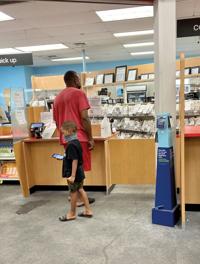
– South Florida’s Black communities are trapped in a vicious cycle of inequality. Access to adequate food and health sources to sustain impoverished neighborhoods is close to nonexistent.
For decades, Black people have been diagnosed with chronic illnesses such as heart disease, diabetes, cancer, obesity and hypertension at a much higher rate than any other group. Though genetic predispositions do play a role in these diagnoses, it all boils down to two things – diet and lifestyle choices.
As defined by the United States Department of Agriculture, food deserts are areas where residents lack access to quality fresh and healthy food because supermarkets and shops supplying produce are not within reach. In the same vein, a pharmacy desert is any area without a pharmacy in sight for more than a mile.
Metropolitan Miami leads the state with the highest number of people living in its upward of 300 identified food deserts. As a result, most residents are forced to turn to the convenience stores and fast-food chains that heavily saturate the area for meals. Those options largely offer an excess amount of the things known to deplete health: high levels of sodium, sugar and fat. Not only are these foodstuffs more accessible, they’re also more affordable for families fighting food insecurity. That is why the Centers for Disease Control and Prevention revealed a link between food deserts and chronic illnesses, particularly heart disease. Several health professionals have also declared that in 80% of cases where people develop heart disease, it could have been prevented.
Of Publix’s 79 locations across the county, only 10% are located in neighborhoods where Black residents make up 25% of the population. A mere three stores are in ZIP codes where more than 50% of the resident population is Black. Winn-Dixie, a supermarket chain belonging to Southeastern Grocers, has a much larger footprint in the Black community, despite having fewer locations than Publix in the county – 18% of its stores are located in communities where Black residents comprise 25% of the population. At most, four stores are in communities where the Black population exceeds 49%.
Pharmacies are also scarce.
Among the Walgreens and CVS Pharmacy chains, CVS has 46 more stores but Walgreens is much more accessible to the Black community, with 23% of its 94 locations in neighborhoods where 25% of the population is Black. Only 11% of CVS’ 140 stores cater to the same population.
With limited pharmacies and pharmacists in the community, its members miss out on medication management education, health screenings, prescribed medication and seasonal vaccines traditionally offered at those locations.
Because Publix, Winn-Dixie, Walgreens and select CVS locations are all offering COVID-19 vaccines, the Black community also is presented with the dilemma of being left out of vaccination efforts in addition to limited food and health access, compounded by the majority of its residents suffering from preexisting conditions that require medication.
To prevent these communities from further experiencing health disparities that leave them open and vulnerable to infection and diseases, community leaders are brainstorming ways to eliminate the deserts.
Smith mentioned that his office is currently prioritizing COVID-19 and the direct impact it has on the health of Black residents living in deserts, specifically in relation to vaccine distribution. His main concern is building out an extensive vaccination plan that reaches those residents, especially since the few CVS pharmacies in those communities aren’t even offering the vaccine.
“It was distressing to hear which locations were chosen by the governor’s office for vaccine distribution,” he added. “Dade County does not have as many vaccines to distribute as the state, but we have thoughtfully created a plan and our focus is on an equitable distribution.”
A Vaccine Accessibility for Community Safety outreach effort recently launched to bring 500 doses in mobile units to underserved communities daily by targeting public housing sites. Carol City was one of the first Black neighborhoods to benefit.
Rahel Weldeyesus, senior advisor for innovation and performance at the county mayor’s office, mentioned a canvassing initiative to reach those still hesitant to take the vaccine. She also said the county will work to create policies that address the issues linked to deserts.
“Through this platform we can serve as a convener of the services and private business leaders,” said Smith, who referenced plans to have the mayor’s office call on Publix and other chains for a conversation on expanding their footprint in Black communities.
The office of equity and inclusion will work in tandem with partners like the Health Foundation of South Florida and the Black Prosperity Alliance to address food inequities, health and wealth disparities.
According to Akiti, the key to addressing health disparities in Black communities is resolving the issue of poverty that plagues those communities.
“To eat healthy, it takes more income. Health and wealth are not exclusive of each other,” she said. “If you do not create wealth, the cycle of poverty continues. And if poverty continues, you will continue to get health disparities.”
To Akiti, some leaders have taken the wrong approach in trying to create programs that provide a hand down instead of what she calls “hand ups.” Surface-level programs like annual health fairs only point out poor health in Black communities without creating a lasting solution, she said. Instead, a group of investors should be convened to discuss beneficial partnerships with supermarkets like Publix, Winn-Dixie and pharmacies to bring more locations into Black communities without fear of losing revenue, being that these types of retailers are mainly situated in more affluent communities.
But as the solution to food and pharmacy deserts is much more multifaceted, Akiti said HFSF will use varied approaches.
A $1.5 million COVID-19 education campaign will increase testing and push educational material using radio, social media, toolkits, print advertisement and radio to inform Black and brown communities about where they can get the vaccine, its effects and how to stay safe.
A portfolio of impact investment will also be developed through the South Florida Anchor Alliance. The alliance, founded and managed by HFSF, comprises hospitals, health care systems, education enterprises and municipalities and will use their capital for procurement and creating investment practices that will benefit local economies.
The alliance is what Akiti said will build wealth in Black communities, while other impact investments can address undervalued homes, bring in more health and food resources, and vocalize a need to increase income through better jobs.

For G. Eric Knowles, Miami-Dade Chamber of Commerce president and CEO, food and pharmacy deserts can only be remedied if Black residents leverage their consumer power, engage in corporate sit-downs with the grocery store and pharmacy chains, and, as voters, hold their representatives accountable.
Knowles, one of three leaders behind the alliance’s tricounty efforts, values collaboration and building a collective voice.
“We as Black America have to let these companies know that our dollars matter, especially in situations like what we saw with CVS, where they blatantly disrespected us by not coming into our communities with the vaccine,” he said. “There has never been a greater opportunity than now to address the community through policy. We now have five Black county commissioners. We will sit down with Related Urban Development and (other) corporations to eliminate these food deserts, and use the same approach for pharmacies.”
Currently in its initial stage of creation, the alliance is focusing on building infrastructure and committees to address specific areas like health, economy and government.
One immediate thing Knowles has vowed to do is keep an eye on the Liberty City Redevelopment project, to see if developers deliver on their promise to bring a Publix to the neighborhood.

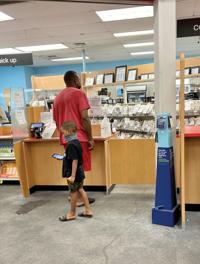
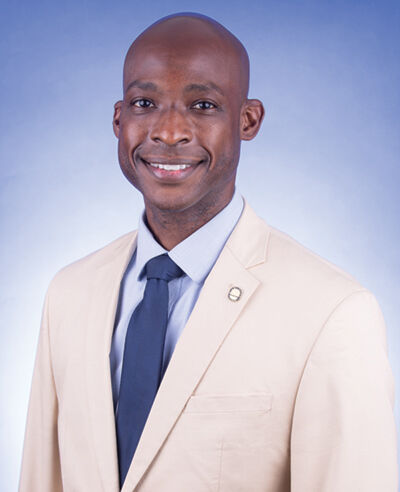
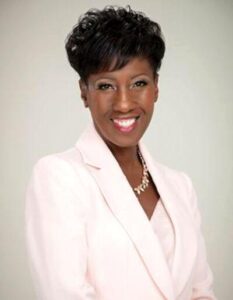
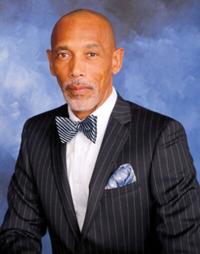
Be the first to comment